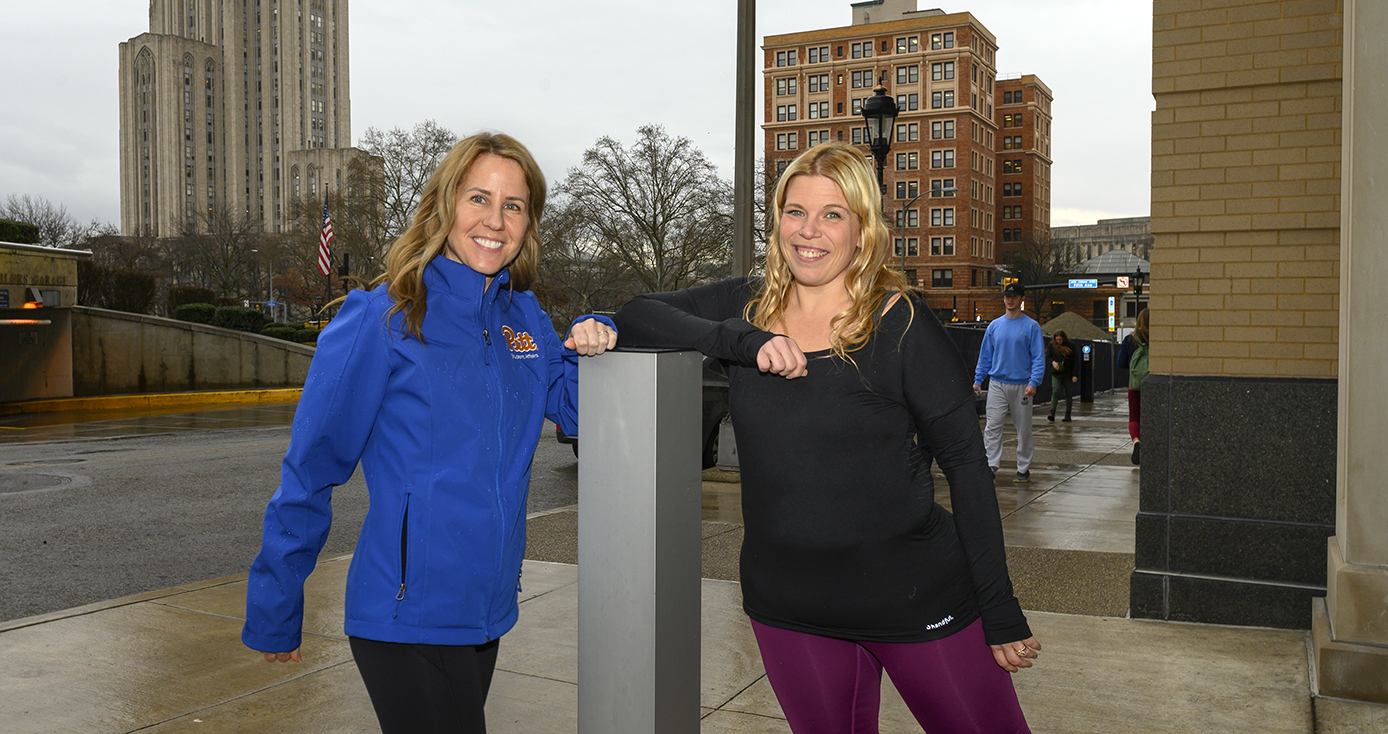
Subscribe to Pittwire Today
Get the most interesting and important stories from the University of Pittsburgh.New Group Therapy Option is Runaway Success
There’s a new group on campus keeping pace with students’ mental health needs.
Bobbi Jo Witham, a clinician in the University Counseling Center created Running Forward in the summer of 2019 with colleague and social worker Cassandra Long. Don’t be turned off by the name, though. Witham is quick to clarify: “It isn’t a running group. It’s a therapy group that incorporates running.”
Very few college counseling centers have a model like it, she noted.
The group is open to undergraduate, graduate and professional students. Students can sign up on the UCC website.
“Reactions so far have been very positive and insightful. It’s been pretty impactful for us to see some of their experiences and things they’ve taken away from group," Witham said.
Hitting the ground
Witham started training with a running group in Pittsburgh when her mother was diagnosed with pancreatic cancer in 2013. “It was the thing that got me through that whole period.”
“As a counselor,” she said, “I’ve always tried to think outside the box in terms of how to get people to open up, how to get people to share if they don’t feel comfortable in a traditional setting.
“Sometimes people struggle coming into counseling because they see us as so much different—like, we’re the professional and they’re the person who needs help. Whereas in this group, we’re just people.”
Running Forward meets once a week for 90 minutes, the same as the 27 other theme- and process-centered group counseling options offered through the University Counseling Center. Other offerings include support for everything from coping with grief and body image issues to anxiety and trauma support. Groups range in size but are never bigger than 10.
For the first 30 minutes, Running Forward participants jog through the Oakland neighborhood at a talkable pace, discussing anything. Back at the center, they engage in group talk therapy for the remaining hour. The run often acts as a vehicle for deeper conversations about introspection, self-growth and mental health. “A lot of the physical symptoms people feel mimic anxiety when running: side stitches, cramps, hyperventilation,” said Witham.
The benefits of physical exercise have ripple effects for mental health, Witham noted. “It’s something many people know, but don’t always have the motivation to do on their own. The group provides that accountability.”
Long agrees. “I’m not an avid runner and actually don’t much enjoy running, yet I keep doing it because I believe that it has so many benefits and that students are actually getting something out of it,” she said. “I think it’s important for them to realize that you don’t have to be good at something to receive benefits from it and that you change by making yourself uncomfortable.”
Long likens the idea to art therapy. “The purpose is to help people with their overall well-being and mental health, not to make people better runners.”
Witham and Long note that there’s no prior experience with running necessary to join Running Forward. “They just need to be willing to run,” Witham said.
Understanding that running isn’t for everyone, they’ve also starting a Walking Forward group, and can refer students to other groups or counseling options that might be a better fit.
“One thing about being at Pitt is, because the campus is so big, sometimes I feel like there’s a lack of community for some students. Some students find a student group or find someplace they can fit in. But what I often see at the counseling center is the lack of having that,” said Witham. “The impact of that on mental health is huge. My experience with the running community is that they’re amazing, some of the nicest, kindest, most helpful people ever. And so to help create that here has been really cool, especially for students who’ve never felt that here at Pitt.”
Relationships formed in the group have grown beyond the sessions, Witham said. “They get to decide how they want to continue with the benefits of exercise on mental health. Some of them have thought about doing races now. Once last semester ended, a lot of them started going to the gym together. We both felt like proud parents. They have their own little community. It’s been a really cool experience.”


